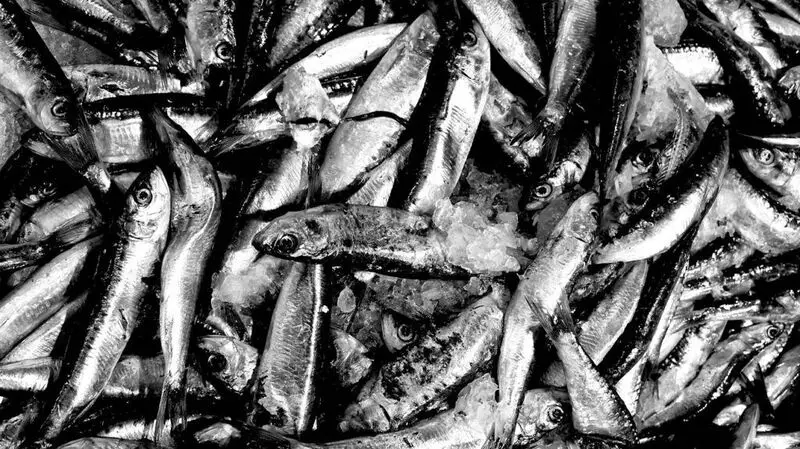
- Ketogenic diets are being studied for their potential role in cancer prevention.
- New research in mice suggests the types of fat consumed can significantly impact the effectiveness of a diet associated with a lower risk of cancer.
- Experts recommend following established dietary guidelines for lowering cancer risk.
The ketogenic (keto) diet is a very low-carb, high-fat diet that aims to trigger ketosis, a metabolic state where the body uses fat for energy instead of glucose.
This diet has been studied for its potential benefits in managing
Researchers are also investigating the possible advantages of carbohydrate restriction in treating other chronic conditions, like
A recent study by BC Cancer and the BC Children’s Hospital Research Institute in British Columbia, Canada, which appears in
The study, conducted in mice, emphasizes the importance of selecting healthy fats, as the type of fats consumed in a keto diet could significantly impact cancer prevention outcomes.
Researchers evaluated the impact of seven different fat-enriched keto diets on the development of lung nodules in mice, which were induced by nicotine-derived nitrosamine ketone (NNK).
They compared the effects of these diets to a standard Western diet (50% carbohydrates) and a control diet that contained 15% carbohydrates (amylose). The fats included in the study were Western-type fats (standard keto), medium-chain triglycerides, milk fat, palm oil, olive oil, corn oil, and fish oil.
The purpose was to determine how each specific fat type influenced cancer prevention efficacy when incorporated into a keto diet framework.
Mice were fed their respective diets for 2 weeks prior to NNK injections and for 5 months thereafter.
The study evaluated key health metrics, including nighttime blood glucose levels, plasma
In addition, the study analyzed the mice’s gut microbiome through fecal samples to understand the mechanisms behind how different fats in keto diets might contribute to their anti-cancer effects.
The study found that keto diets, regardless of the type of fats included, were more effective in preventing lung nodules in mice than Western and 15% carbohydrate diets.
The Western diet performed the worst, with an average of 18 lung nodules per mouse.
Notably, compared to a standard keto diet, the researchers found that a keto diet enriched with fish oil, which is rich in omega-3 fatty acids, was particularly effective at preventing NNK-induced lung nodule formation.
The study authors suggest that the increase in specific omega-3 fatty acids, namely EPA, DPA, and DHA in the lungs, played a crucial role in reducing lung cancer nodule formation, more so than other types of fatty acids.
However, since the study was conducted on mice, its applicability to humans is uncertain, and the exact mechanisms of fish oil’s effectiveness require further research.
Medical News Today spoke with Dr. Daniel Landau, board-certified oncologist and hematologist for The Mesothelioma Center, not involved in the study, to gain perspective on how keto diets might be used to reduce cancer risk.
Dr. Landau said research on ketogenic diets as anti-cancer diets is still being conducted, but there have been some studies suggesting benefits.
“One theory as to why this may be the case has to do with the limitation of sugars in the diet. While every cell in the human body requires sugar, it is well known that cancers disproportionately require sugar to grow. Theoretically, limiting excessive sugar could offer benefit in either cancer prevention or cancer treatment,” he explained.
Kiran Campbell, a registered dietitian who was not involved in the study, agreed, noting that by shifting the body’s primary energy source from carbohydrates to fats, keto diets may inhibit cancer cell growth by reducing the availability of glucose, which tumors rely on for their glycolytic processes.
Campbell explained that this metabolic alteration also limits insulin and insulin-like growth factors that promote cell growth, including that of
“Therefore, limiting carbohydrates in our diet may protect against cancers by starving cancer cells of energy for cell proliferation,” she said.
The fish oil-enriched keto diet was found to be the most effective in protecting mice against NNK-induced lung cancer nodules as compared to other fat-enriched keto diets.
Though the exact mechanism is not well understood, experts believe that fish oil’s success can be attributed to its potential to enhance ketosis and regulate cell cycles.
According to Dr. Alexandra Filingeri, a registered dietitian and doctor of clinical nutrition who was not involved in the study, the keto diet supplemented with fish oil resulted in a significant increase in ketosis among the mice as compared to the other groups. This was evidenced by a rise in beta-hydroxybutyrate levels and lowered blood glucose levels.
These effects, combined with reduced
Although the exact pathophysiology is currently unknown, Dr. Landau said that fish oil has also been shown to affect cell cycle arrest and induce programmed cell death — called “apoptosis” — in
“So, supplements or therapies that can shift the balance of cell cycle growth could theoretically augment the control of cancers,” he concluded.
Despite the potential benefits of keto diets in cancer prevention, there are concerns regarding its effects on cardiovascular health.
The study authors emphasize that while a fish oil-enriched keto diet shows promise as a future preventive measure against lung cancer, the implications for cardiovascular health need to be thoroughly evaluated before recommending such dietary interventions.
Campbell shared the same opinion, stating that it is particularly important to consider other health conditions when recommending keto and fish oil in the context of cancer.
A high-fat diet may increase lipid levels, including VLDL and LDL cholesterol, which could be harmful to cancer patients who also suffer from cardiovascular diseases, she elaborated.
“In this study specifically, mice supplemented with fish oil saw an increase in beneficial HDL cholesterol levels, but it also increased VLDL and LDL [bad] cholesterol levels, ” Campbell noted.
Dr. Landau stated that preliminary studies have shown that there are potential benefits and reasons to consider using keto diets for at-risk populations.
However, Dr. Landau, Dr. Filingeri, and Campbell agreed that more human research is necessary before recommending keto diets or fish oil for cancer prevention.
Instead, to reduce cancer risk, experts suggest focusing on whole foods and healthy fats, including omega-3s.
Campbell also underscored the importance of adhering to established guidelines recommended by the
These guidelines emphasize maintaining a healthy weight, an active lifestyle, and a diet rich in fruits, vegetables, whole grains, legumes, nuts, and seeds while limiting refined grain products, highly processed foods, red and processed meats, and sugary beverages, and avoiding alcohol consumption.
This new study highlights the potential benefits of keto diets and omega-3 fatty acids like fish oil in cancer prevention strategies, emphasizing the importance of consuming healthier types of fat for optimal health outcomes.
According to Dr. Filingeri, the types of fat consumed in keto diets matter, but preventing cancer through diet is a complex issue that involves multiple factors such as physical activity, lifestyle, genetic predisposition, and more.
To reduce cancer risk related to diet and lifestyle, individuals should adopt multiple health-promoting behaviors, she explained.
Dr. Filingeri recommended discussing the keto diet with a medical doctor or registered dietitian before making any dietary changes.
Regarding the keto diet, Campbell concluded:
“There are much better dietary recommendations available that are more satisfying, more sustainable, and most importantly more evidence-based for cancer prevention [such as]
plant-based andMediterranean dietary patterns.”





